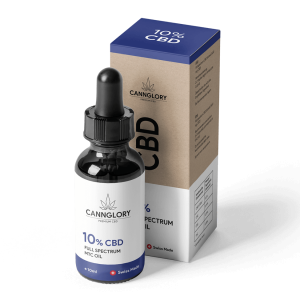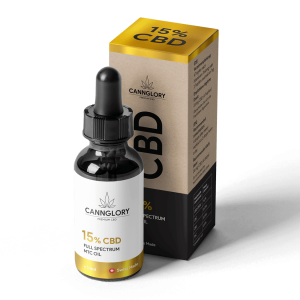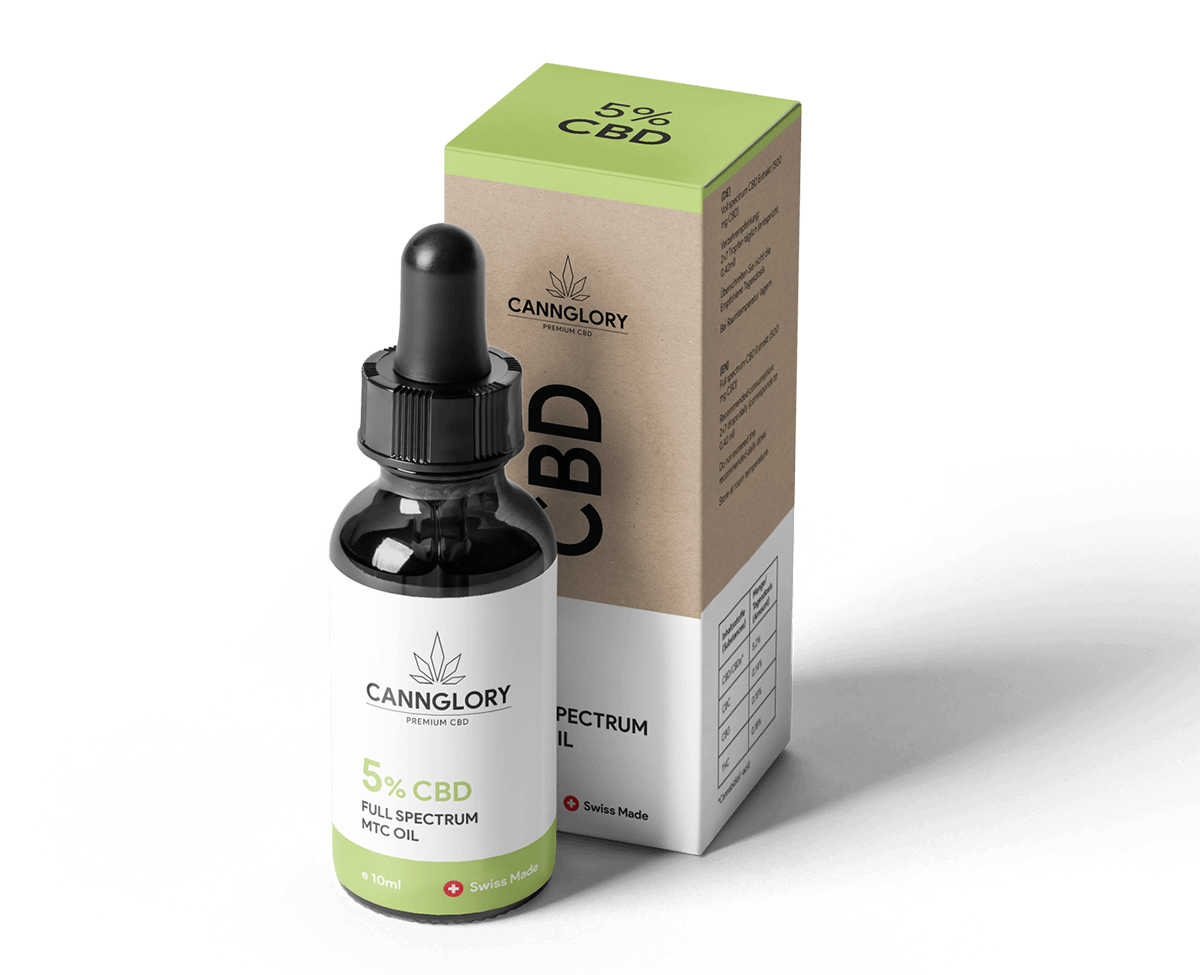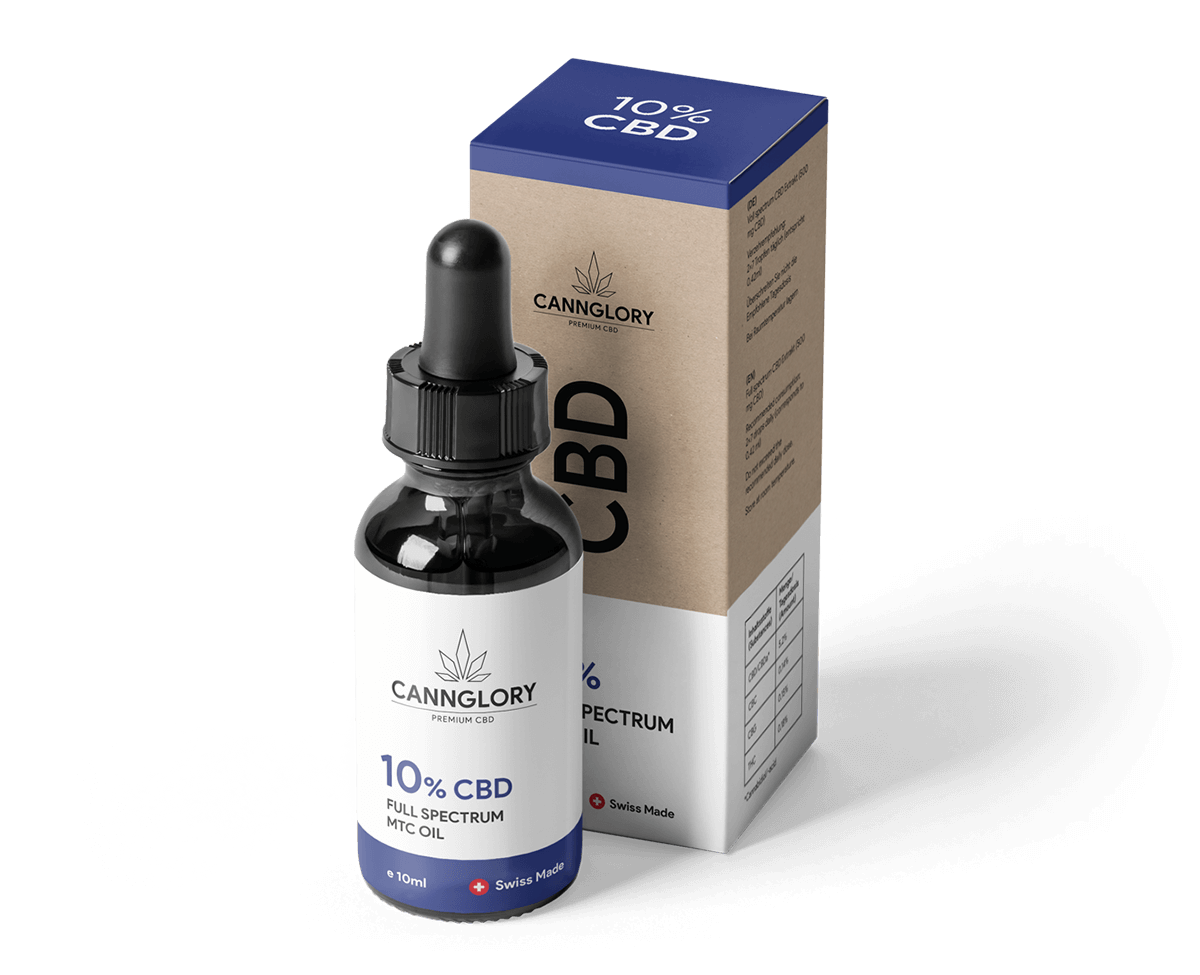
Can CBD help you with stress?
- What is stress?
- Symptoms
- Psychological symptoms
- Headache
- Loss of appetite
- Tremor
- Sweating
- Symptoms of emotional stress
- Symptoms of behavioural stress
- What helps against stress?
- Side effects
- FAQ about CBD
Anxiety or stress is an extremely widespread problem in a large percentage of the population. During stress, you have to cope with a number of unpleasant symptoms that can negatively affect or even completely eliminate your work or private life. Most medications for stress are tied to a prescription and carry a range of unpleasant side effects. A great alternative is CBD, whose relaxing effects without psychoactive properties have been known for about 50 years.
Cannabidiol and preparations containing this substance are able to calm areas of the brain that are particularly active during stress or anxiety, not only shown in the improved condition of patients but also on CT scans. The subsequent freeing-up and relaxation of the user is the best way to beat stress.
CBD oils are the most common form of the drug. In addition to cannabidiol, these contain active terpenes such as binalool, limonene, myrcene and beta-caryophyllene. These are capable of providing relaxing, soothing and relaxing effects. In addition, they contain antidepressant or anxiolytic properties. However, the work of cannabidiol in the body is very important. This activates the endocannabinoid system, which in turn achieves more effective therapeutic effects. Alongside this, it also responds to other non-cannabinoid receptors that can achieve the potentiation of stress symptoms.

It is a maximally safe substance, as evidenced by its safety profile. It has almost 20 times the lethal dose compared to diazepam, for example. In addition, CBD does not cause negative changes in the user’s heart rate or breathing. CBD does not react to the cardiopulmonary centers in the brain, so it does not bind to them and cause side effects. Compared with other drugs, there is no risk of overdose.
What is stress?
Stress means pressure, burden, tension. We can find many definitions of stress. However, experts are inclined to believe that it is the condition of a living organism in which it is exposed to stressors (extraordinary conditions) and its subsequent defensive reactions. These are intended to maintain homeostasis, to prevent damage or even the death of the organism.
What stress means can also be described from the point of view of medicine. It is the totality of psychological and physical reactions to an unacceptable ratio between imagined and actual expectations or experiences. It is therefore a response that can involve both psychological and physical components. It is a response to a variety of strongly acting burdens. Subsequent defence mechanisms protect it from danger. Consequently, what can cause stress is important. Stress symptoms can be identified accordingly.
Symptoms of stress

Stress symptoms are the body’s usual developmentally encoded preparation for flight or fight. Metabolic-functional and neuro-humoral changes occur. Such stimuli subsequently trigger stressors, or stress reactions. These can be social (serious life events such as divorce, arguments, deaths, birth of a child or societal pressure – they manifest symptoms of emotional stress), physiological (illness, pain, injury, lack of basic necessities of life such as water or food, or various bad environmental conditions of life – cold, heat, toxins, noise, smoke) or psychological (various stimuli that a person perceives as threatening or challenging to life). We can mention the fear of not meeting expectations, negative emotions, fatigue, overload or anxiety).
Symptoms of chronic stress
If a person constantly struggles with various stressful situations, he/she can suffer unpleasant chronic stress. It appears even after one feels relief and thinks that all problems have been overcome. The digestive, immune, reproductive and cardiovascular systems suffer. Symptoms of chronic stress include stomach problems, lack of energy, skin problems, changes in appetite, inability to concentrate, nervousness, forgetfulness, infections, erectile dysfunction or loss of sex drive or problems with sleeping. In this case, symptoms of subconscious stress such as excessive strain on the back and neck, leading to headaches, may also occur. However, there are also unpleasant symptoms of psychological stress, which we will discuss below.


Stress symptoms in women
Stress is a normal part of life, even for the fairer sex. Stress symptoms in women and the reaction to this phenomenon are different than in men. They are more affected by the emotional or physical effects of stress. According to Dr. Rosch (clinical professor of psychiatry and medicine at New York Medical College), she states that this fact is noted in their body chemistry, as they possess higher amounts of estrogens. Longer-term symptoms in this sex include eating disorders, stomach and skin problems, heart disorders and even cancer.
Most common questions about CBD
Psychological symptoms of stress
Psychological stress is also extremely unpleasant. The symptoms of psychological stress are many and often affect even the most basic abilities to lead a good working or private life. Symptoms of psychological stress include symptoms such as headache, loss of appetite, sweating, trembling, severe heart palpitations, nail biting, flushing, neglect of appearance and personal hygiene, stage fright, nervousness to rage, impatience, tearfulness and anxiety, bouts of sadness, depression, indifference, memory problems, panic attacks, confusion, difficulty making decisions, disorientation, lack of concentration, fatigue or sudden and unexpected mood changes.

You can relieve psychological stress with a bit of happiness by adjusting your lifestyle. However, in most cases, it is necessary to resort to drugs, which, however, are accompanied by unpleasant side effects. But many symptoms of psychological stress can also be eliminated with natural remedies. Cannabidiol is one such substance. Try CBD oil for headache, CBD oil for your appetite or other problems that limit you during this form of stress. The interaction of this substance on the endocannabinoid system may be the right way to return to normal life.
Headache
A headache can have many causes. A common trigger is a migraine. It is a symptom of psychological stress and is also classified as a migraine symptom. This is a chronic disease characterized by recurrent severe to strong pain in this part of the body. However, these are accompanied by other symptoms, which are often related to the autonomic nervous system. The origin of the name is derived from the Greek language, namely hemikrania (pain on one side of the head). When you break it down, it comes down to the hermi – half and kranion – skull. A migraine is caused by a combination of genetic and environmental combinations. Up to two-thirds of cases are hereditary. Problems can also arise when hormones fluctuate. Paradoxically, a headache during pregnancy does not have to mean a migraine, as the susceptibility to them decreases in pregnancy. However, the causes of migraine are not fully understood, but scientists are inclined to believe that it is a neurovascular disorder.
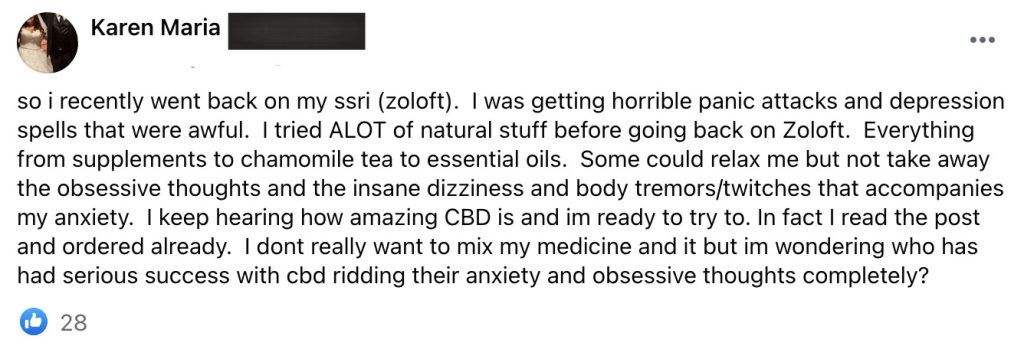

Migraine
There are two main subtypes of migraine. Migraine with aura is a headache accompanied by visual disturbances (blind spots, flashes of light, zigzag patterns). It is often associated with twitching, numbness or prickling in the hand, face or arm. In certain cases, speech disorders manifest themselves. Symptoms last from five minutes to an hour and appear before the actual pain in the head areas. A migraine without aura comes with a severe to throbbing or stabbing headache. In most cases, it is a unilateral headache. It is a constant headache lasting up to three days. It is also caused by regular human activities such as walking up the stairs or walking in general. Often headache and nausea or extreme sensitivity to sounds or light combine.
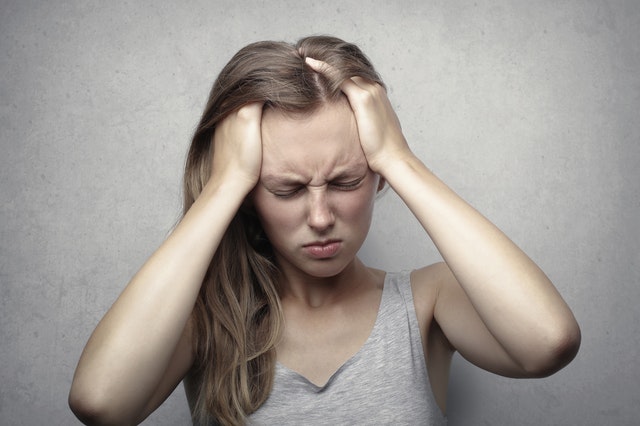
Cluster headache
Cluster headache (also called a bought headache) is extremely common in men (4 to 5 times more than in women). It is localized around the eyes, from where it progresses lower down the face to the shoulders or vice versa up to the temple areas. There may also be an ache centered in the forehead. The cause is usually a disorder of the blood vessels in the eye area. Subsequently, pressure is created on the carotid artery and irritates the nerves nearby. It is accompanied by severe headaches – unilateral, accompanied by a reddening of the eyes and their excessive tearing, stuffy nose and swelling of the mucous membrane. This is an extremely serious problem, as it is difficult for a person to come to terms with the extremely painful symptoms, considered to be some of the most severe pain ever.
-
CBD Oil 5% Full SpectrumProduct on sale15,90 €
-
CBD Oil 10% Full SpectrumProduct on sale39,90 €
-
CBD Oil 15% Full SpectrumProduct on sale54,90 €
Tension headache
A tension headache is a dull, bilateral pressure headache. According to statistics, up to 78% of Europeans experience it. It is provoked by tension of the muscles of the shoulders and neck. Factors for an onset include fear and anxiety, lack of sleep, emotional stress, unilateral loading of the back muscles (sedentary work) or poor posture. It is manifested by episodes of acute headache lasting from half an hour to several days. The patient feels a pronounced pressure on the head coming from the outside. Neck pain and a headache are combined. Unlike migraine, physical activity is possible and often helpful. An episodic tension headache occurs no more than 14 days in a month. However, if it lasts for more days or at least three months (at least 180 days a year), we are talking about a chronic form of tension headache.
Loss of appetite
This should not be underestimated, as it is often a concomitant of a certain disease. Reduced or complete loss of appetite usually has specific psychological or physical triggers. If it appears in classic infectious health problems (often accompanied by temperatures), it is not suitable to force oneself to take in food right away. It is important to follow a proper drinking regime and without an appetite, you should only do without healing. This phenomenon is not uncommon even in the first trimester of pregnancy, when nausea and loss of appetite is common. But the reasons for loss of appetite can be much more serious, for example, in right ventricular failure. Then, due to its poor function, blood builds up in the digestive tract and veins, which interferes with the absorption of nutrients. A lack of appetite also occurs in advanced stages of cancer. We can also mention autoimmune diseases such as celiac disease, ulcerative colitis or Crohn’s disease.

Loss of appetite and the psyche also often go hand in hand. It occurs during stress, migraine, depression or states of anxiety. A separate group is anorexia. This is a mental illness that consists of food refusal and a distorted idea of one’s body. However, drugs for anorexia are often associated with side effects, so it is recommended to improve one’s mental state with natural products containing, for example, the active substance CBD.
Tremor
A tremor is a rhythmic and involuntary movement that occurs on specific parts or tremors throughout the body. These are involuntary movements most commonly manifested in the form of shaking hands or lower limbs, face, torso or vocal cords. These muscle tremors have causes related to either neurological origin or are the origin of other stimuli or diseases.
Causes of tremor
The causes of tremors are found deep in the brain, specifically in the part of the brain that controls muscle movements. Other diseases such as traumatic brain injury, multiple sclerosis and stroke are often associated with this neurological disorder. It can be triggered by the use of drugs (caffeine, corticosteroids, amphetamines) and can also be caused by a lack of vitamin B, magnesium or sleep. In certain cases, it signals hypoglycaemia or even mercury poisoning or liver failure.
Types of tremor
There are four types of tremor. The first is a Parkinson’s tremor, which is a classic symptom of a uniform disease. It appears most often after the age of 60. We observe tremors in the hands, but in the first stages it develops more in the lower limbs. An essential tremor is the most common and appears at all ages (but most often after the age of 40). It is the trembling hands that cause symptoms of this type, sometimes the legs also tremble. This type of tremor is usually caused by stress. Holmes tremor is rarer and occurs when the part of the brain that is affected by lesions is disturbed. It arises in alcoholics or after consuming a large amount of medication. The cause of intention tremor is a violation of the cerebellum.
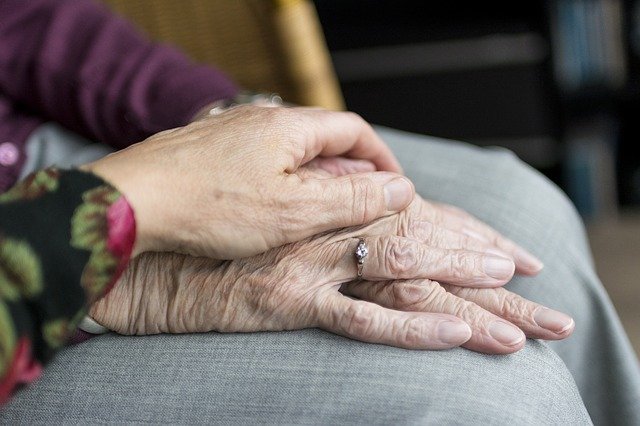
During the tremor, there is also sudden shivering and coldness all over the body, internal trembling all over the body, a trembling of the eye, a tremor of the head, trembling of the fingers, trembling during sleep or trembling on waking.
Sweating
Hyperhidrosis is an excessive secretion of sweat that is normally necessary for the body to thermoregulate. The cause is usually environmental influences (secondary) or a hereditary problem (primary). The treatment of hyperhidrosis is not based on completely preventing sweat secretion, it is about stopping excessive sweating and simply limiting sweating to an acceptable level for a particular person. There are many antiperspirants on the market, but not all of them are without side effects. It is advisable to choose natural preparations, for example cannabidiol-based.
Sweats
Sweating it out at night is not uncommon. Unhealthy night sweats are considered when you expel one to more liters of sweat per night. This can consist of a symptom of several mild, but also more serious health disorders. Severe night sweats may be caused by major hormonal changes, thyroid disorders, diabetes, diabetes mellitus, obesity, high blood pressure, chronic inflammatory diseases, acute infectious diseases, neurological disorders or sleep apnea. Menopausal or perimenopausal sweating is the most common cause of sweating during sleep in women. It can even last up to years and is accompanied, for example, by heavy sweating from the head.

Cold sweat can also take a person by surprise. This is profuse sweating without exertion or higher ambient temperature. We observe sweaty hands (palms), sweat in the armpits or on the soles of the feet. Nor is it limited to night hours. It is usually caused by stress, injury or lack of blood or oxygen.
Symptoms of emotional stress
This type of stress afflicts a great number of people. Emotional stress is a health problem that is linked to our emotions. The most common symptoms of emotional stress are fatigue, crying, signs of fear, irritability, tension, sleep disturbances, weight gain or loss, memory fluctuations, decreased libido, exhaustion, debilitation, mood changes or avoidance of loved ones. Symptoms of emotional distress can have multiple causes. The most common stressors include work or student pressures, psychological pressure in the family and at work, health problems, a poor financial situation, problems in private life, big changes in life, pessimism or the inability to accept uncertainty.
But how to suppress or avoid such problems altogether? Try CBD against fear and anxiety. In fact, cannabidiol in particular has been shown to work well in patients with social-anxiety disorder. After taking CBD oil, you experience fear much more effectively, as there is an interaction of this substance with the 5-HT1A neuro-receptor, which is targeted by various pharmaceutical drugs such as SSRIs (selective serotonin reuptake inhibitors). CBD oil is also used against fear by people with cognitive disorders, who have shown, for example, a reduction in discomfort with speech and increased alertness in their anticipatory speech. CBD oil has also found its use in fatigue, which helps eliminate stressful situations.
Symptoms of behavioural stress

Symptoms of stress often manifest themselves in ways other than emotional or physiological. Stressful behavior is accompanied by insomnia, absenteeism, cheating, distractions, limited communication or poor grades. The symptom itself is aggression, which, however, can be suppressed with various preparations. Cannabidiol will help you in this regard as well. Without worrying about unpleasant side effects, one can use CBD for fear, CBD oil to treat anxiety disorders or even CBD oil for insomnia. Experience with CBD oil for sleep disorders has shown that consuming these products stimulate the same receptors as caffeine.
What helps against stress?
The effect of CBD on this problem is proven by many scientific studies. To avoid having to use conventional pharmaceutical drugs against stress, choose this natural way instead. CBD oil leads to the relieving of a bad mood, stress itself but also anxiety states. The CBD effect is based on its action on the endocannabinoid system and protection of the nervous system. The human body has CB1 and CB2 receptors located in the central nervous system.


However, these are not the only anti-stress measures that this substance possesses. They can also positively influence the transmission or production of serotonin (the happiness hormone). Its low level is associated with depression or the emergence of stressful situations. And it is this natural antidepressant that can bring its level to the necessary values. Dosing is simple and accurate.
A 2010 study showed a reduction in symptoms of social anxiety disorder (SAD). Cannabidiol alters blood flow to the parts of the brain that affect these feelings and, in users, changes the way the body responds to fear.
The dosage of the preparations is simple and precise. Its use is even allowed for breastfeeding or pregnant mothers. Cannabidiol is also recommended for problems children suffer from. The correct dose should take into account the concentration of the active substance, the user’s metabolism, body weight and the severity of stress symptoms.
Side effects of CBD
Products made with CBD have very few proven side effects, and most are minor. These can include:
- Dry mouth
- Low blood pressure
- Drowsiness
- Sleepiness


